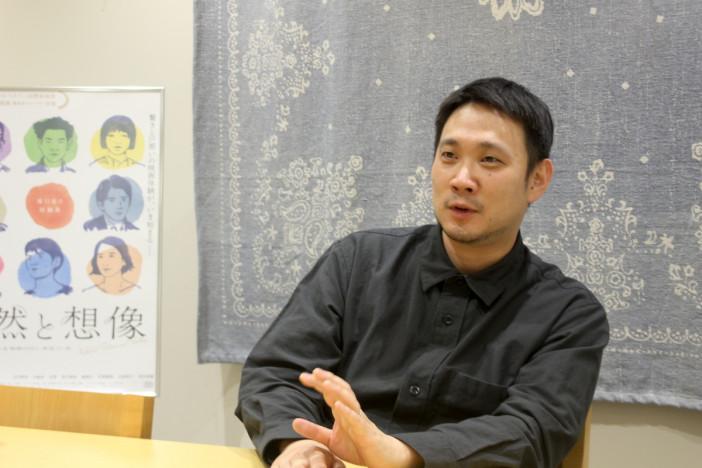"Wheel of Fortune and Fantasy" (c) 2021 NEOPA / fictive

"Drive My Car" has won the Cannes International Film Festival and other domestic and international film awards one after another. It is especially highly regarded in the United States, and has won various awards at the Film Critics Association Awards such as New York, Chicago, and Los Angeles. It is a situation that is causing a good advance. What is interesting is the fact that Japanese audiences do not see such works so much. Looking at the data on the box office revenue rankings in Japan, it is not in the top 50 of all Japanese movies released in 2021. [Photo] Kotone Furukawa appears in the first episode However, due to the recent whirlwind of "Drive My Car" overseas, Ryusuke Hamaguchi's new work "Wheel of Fortune and Fantasy" was released on a small scale. It seems that it is getting a lot of attention. "Wheel of Fortune and Fantasy" itself has also been highly evaluated overseas, such as receiving the Silver Bear Grand Jury Prize (Jury Grand Prix) at the Berlin International Film Festival. When I watched it at "Bunkamura Le Cinema" in Shibuya, I was surprised that the theater was full about a month after the release, although it was affected by the limited number of public halls. Was done. The result of "Wheel of Fortune and Fantasy" wrapped in such enthusiasm did not disappoint. The omnibus composition of three small-scale episodes, each depicting the relationship between two or three characters in a stage drama style, gives a light impression with a series of low-volume episodes and scattered humor, which is different from the feature film. It provides the audience with fun from the same direction. However, as expected, it is a script work directed by Ryusuke Hamaguchi. Similar to "Drive My Car", the moments when you can feel the terrifying side and madness of human beings come many times in the play, and you can experience the feeling that you are suddenly taken away from your daily life to a different space. There is. The first episode, "Magic (more uncertain)," depicts various emotions in love, including crazy negative emotions. Her model, Meiko (Kotone Furukawa), and her friend Tsugumi (Hyunri), a hair make-up, have finished her work and are returning by taxi. In her car, Tsugumi happily reports that she met the ideal man and she had a "magical" time. Meiko was listening to the story as if to whisper, but after Tsugumi got off the taxi, she changed her facial expression and instructed her driver to return to the way she came. From the scene of girls talk, which should be fun, the movie turns into a disturbing atmosphere. As I wrote in "A thorough explanation of the appeal of the" Drive My Car "screenplay, the idea of" delay in interpretation "and the crossing of genres * 1", the fun of the script and the production here remains hidden in the core. As the story progresses, it is a part that dazzles the audience. Moreover, the developments and settlements prepared after this are not ordinary things that can be predicted immediately. Since there are no scenes where the situation can be understood at a glance and there are no descriptive lines, the audience gradually changes the relationships between the characters and humans based on the content of the conversations exchanged there and the acting of the actors. You will understand the nature and trace the outline by groping. Even if what is projected on the screen is everyday events and scenes, they seem to be mysteries and suspense. This technique is also found in Korean director Hong Sang-soo's work. Perhaps you are aware of that, and in this episode as well as the director Hong Sang-soo, there is a strange production in which the camera suddenly zooms. The zoom, which is used like a "special move", effectively directs the "magic" that is the subject of the episode. In the second episode, "Kiyohiko Shibukawa", a professor at a university (Kiyohiko Shibukawa) and a student (Katsuki Mori) trying to seduce him in the laboratory, the second episode, "Keep the door open," unfolds in an unexpected direction. A hint will be drawn that expresses the peculiar production intention of Director Hamaguchi as mentioned above. When a female student is swept away by the situation or talks about her disappointment with her lack of strength, the professor says, "You have talent." The talent is, according to the professor, "to be able to receive reality in an ambiguous manner." In other words, it does not simplify actual events in line with conventional wisdom and social values. In the professor's view, whether or not it can be done is the criterion for distinguishing between extraordinary and non-extraordinary.
Next page: Strong will to be free from mundane and symbolic expressions1/2 page
Last updated: Real Sound